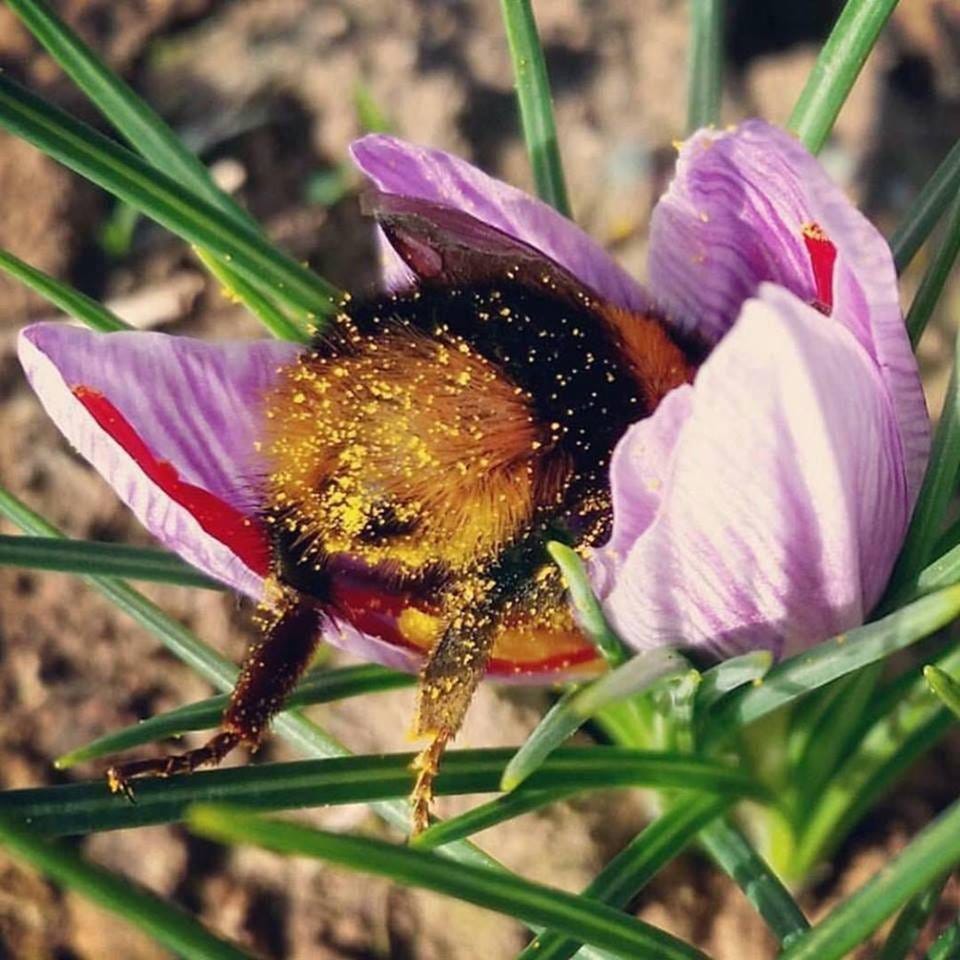From Donuts to Bee Butts
Moving from Sustainability to Reciprocity
I recently read Braiding Sweetgrass, by Robin Wall Kimmerer with a powerful group of women from the Carbon Almanac project. We were talking about moving from a sustainability mindset to a reciprocity mindset and what that can look like. This framing seemed especially relevant to feelings of climate anxiety and despair - that as we look fully at the scope of the challenge and change that lies ahead for us - it can be overwhelming.
For me, the utter delight of fat bee butts pulls me back from the abyss.
For the past 20 years we’ve lived in very-urban-concrete-jungle Oakland, CA. I have a small strip of unpaved dirt - 5’ x 10’ between my front step and the sidewalk. In this tiny space, I’ve crammed every plant for pollinators, migrating butterflies, and hummingbirds I can grow. You might reasonably assume I’m doing this because I want to “save the bees.” And sure, it’s good for us to provide and restore the habitat of threatened species. But the truth is, as an individual actor, I can’t provide a sustainable future for the planet anymore than I can save the bees with my tiny plot of land.
This isn’t why I do it. I’ve found, nothing compares to the absolute joy of sitting on my front step for long enough to notice what’s in front of me. Slowly beginning to really see … and then, catching a glimpse of the fat butt peeking out of a flower. What a precious gift to watch the bee, loaded down with pollen, moving from flower to flower. So perfectly rounded. So fuzzy. So oblivious to my concerns of the day. It’s a gift no amount of money can buy and that costs the bee nothing. I can’t save her species, but we can share this moment. She can give me joy and I can give her flowers. Sustainability may be out of our individual reach, but reciprocity is right here every day.
As Kimmerer says, “Action on behalf of life transforms. Because the relationship between self and the world is reciprocal, it is not a question of first getting enlightened or saved and then acting. As we work to heal the earth, the earth heals us.”
